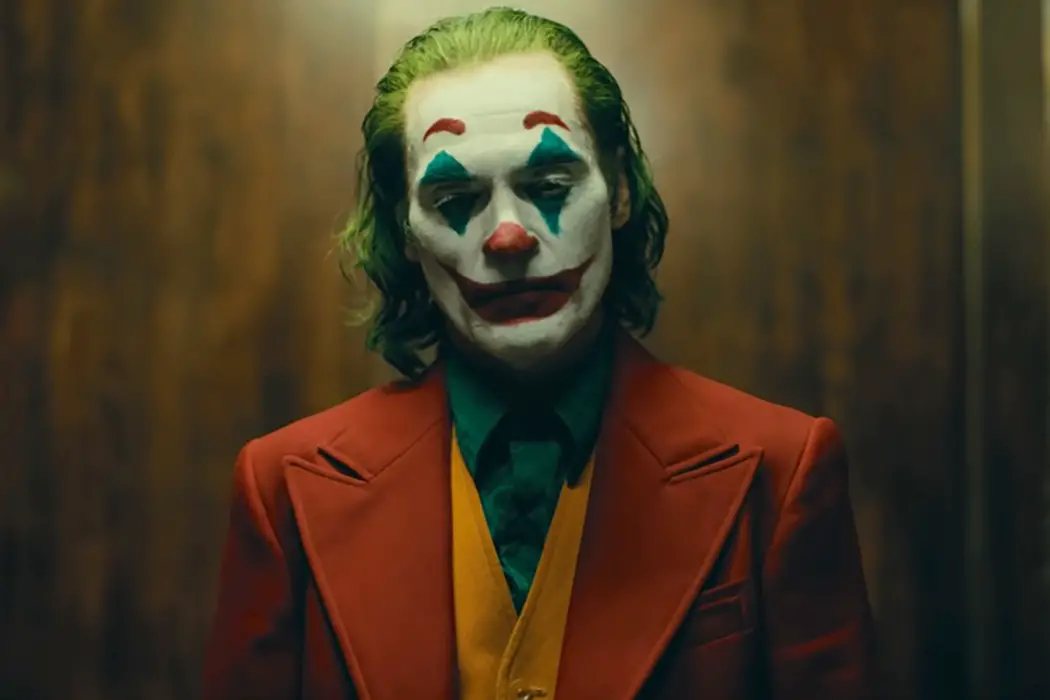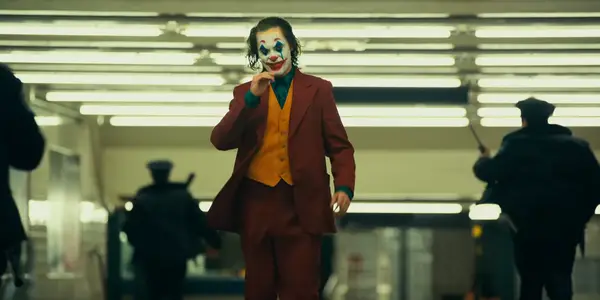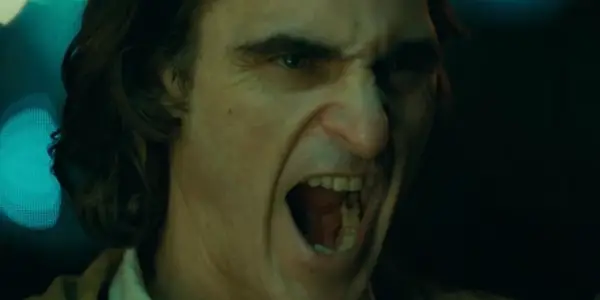TIFF 2019: JOKER: A Lackluster Attempt At Humanizing An Iconic Character

David is a film aficionado from Colchester, Connecticut. He enjoys…
Immediately following Ford v Ferrari at TIFF, the line was already well underway for Joker. After winning the top prize of the Golden Lion at Venice, the hype was palpable. People almost seemed to pile into the theater as the doors opened, and I was thankful that I found a decent seat.
At any rate, I was ready to hunker down and see if Joker lived up to its now extreme expectations. And, I’m sorry to say, that it does not. As with several films of the past few years (Three Billboards, for example), controversy followed it after its overwhelmingly positive initial reaction. People are fearful of the film’s idealization of a mentally ill person taking on the ruling class, and for good reason. But even more than that, though, Joker just isn’t a very good movie. Joaquin Phoenix gives it his all, but there’s not much else here to support him.
A Comic Book Origin Story
Arthur Fleck (Phoenix) is a lonesome, eccentric man who lives with his mom (Frances Conroy) in Gotham. He works dressed up as a clown for a company that sends him off to various vendors, who use him to announce stores closing and for other purposes. Yet, he yearns for more, hoping to one day be a famous standup comedian.
Fleck is often victimized not only due to his quiet nature, but also because of his uncontrollable laugh, a result of a brain injury, at one point even getting severely beaten up one day by some kids. The city of Gotham at the time is a crime-ridden place, but Fleck also has a haunted past, and these two things are a deadly combination.

The film, as stated by director Todd Phillips, is greatly influenced not only by some Joker-centered comics, such as The Killing Joke, but also by Martin Scorsese‘s early NYC-centered films. Scorsese himself was even an executive producer at first before being forced to drop out to focus more on his upcoming The Irishman. The links are still clearly present, though.
What immediately comes to mind is both Taxi Driver and The King of Comedy. The crime-ridden city of Gotham is clearly modeled after 1970’s NYC, while the character of Arthur is somewhat of a blend of both Travis Bickle and Rupert Pupkin, both played by Robert de Niro (who, amusingly, here plays a character with his own talk show, much like Jerry in The King of Comedy).
So, the links are there, the influences are present, and the iconic character of the Joker is brought on as the protagonist. The issue, though is if it all works. And arguably, it does not. What’s missing here is really a firmer hand at developing what is clearly a complicated persona, and I would argue that Todd Phillips isn’t quite that person. There are elements of the film that work, such as the portrayal of the city itself, and the clear explosion of manic insanity that inevitably happens. But what’s missing is the buildup.
Where it’s Lacking
The Joker is one of the most iconic villains in the history of comic books. Creating a backstory for him is a questionable endeavor, because it is often his lack of one that makes him more engaging. Look, for instance, at his portrayal in The Dark Knight by Heath Ledger, in which we never even get his real name, as he comes to represent the evil of society as a whole.
Yet, Joker attempts to do just that. Arthur Fleck has a wounded past, and in turn lives in a dangerously unsettled world. It seems inevitable that he would eventually turn on this society. But the way Phillips approaches his arc just doesn’t feel organic. Explosions of violence come out of nowhere, and for seemingly no reason, happening too early on in the film or with no real purpose behind it. Certain scenes of Phoenix just dancing to nothing stretch on for an eternity, and serve little story development. An entire plot line concerning the character Sophie Dumond (played by Zazie Beetz, who is sorely wasted), could be taken out of the film and it would have little effect on it at all.

As a result, when the film eventually does build to its climax, it just doesn’t feel as if it’s done enough to get there. This is, after all, the origin for a character that we’ve seen represented in comic books and on screen countless times now. After all that, this just doesn’t seem like the story Joker deserved, which leads more evidence to the fact that he really shouldn’t have a backstory at all.
Is it problematic, though?
To focus on a mentally ill character like Arthur Fleck is a delicate endeavor, as it’s clearly problematic to somehow ensue that his mental illness is what leads to his idolization. Mental illness is a prominent and serious issue in our society, affecting both the people inflicted by it and those surrounding them. It has led to serious outcomes as a result. So, is it troubling that what eventually occurs as a result of someone being inflicted by it is seen as somehow morally justified? Considering the many articles that have come out condemning the issue, I would say it’s not too far out to claim that it is.

To be fair, let’s look at a real-life result in particular. The film which forms much of the influence of Joker, Taxi Driver, indirectly led to the attempted assassination of President Ronald Reagan. In addition, though it was later proven to be unfounded, it was originally believed that the shooting in Aurora, Colorado was inspired by the Joker character in The Dark Knight.
Although filmmakers can’t (and shouldn’t) be held responsible for the incidents their works inspire, it’s still clear that they don’t occur in a vacuum. It’s doubtful that Joker will lead to a real-world incident, but there still has to be some moral responsibility on the behalf of filmmakers to portray an issue such as mental illness in a more sympathetic light. Otherwise, the film is nothing more than a glamorization of violence for the sake of entertainment.
Joaquin Phoenix, Though
Let’s end on a high, though. Joaquin Phoenix is simply marvelous in Joker. Along with the script, he takes the character in a decidedly different direction than past iterations, which was a smart decision on their part. After all, it’s hard to measure up to Ledger‘s portrayal in The Dark Knight, or the cartoons on the many animated series.
But Phoenix gives it his all, bringing an almost believable arc to a character that starts off timid and expressionless, but becomes manic and off-the-wall crazy. When you see him at the close of the film, it almost seems like he has fully become the iconic villain. If only there was enough in the script and direction to fully support the end result.
Conclusion: Joker
To conclude, Joker, although clearly a different approach to comic book movies than in the past, just doesn’t feel like a fully developed film. It needed more fleshing out for its title character in particular, and in addition for many supporting characters surrounding him. And that’s before you get to the potentially damaging results that the film could cause.
Joaquin Phoenix is, far and above, the best part of Joker. Besides him, though, this is a comic book story dead on arrival.
What are your thoughts on Joker? Do you think filmmakers have a responsibility for what their movies could inspire? Let us know in the comments below!
Watch Joker
Does content like this matter to you?
Become a Member and support film journalism. Unlock access to all of Film Inquiry`s great articles. Join a community of like-minded readers who are passionate about cinema - get access to our private members Network, give back to independent filmmakers, and more.
David is a film aficionado from Colchester, Connecticut. He enjoys writing, reading, analyzing, and of course, watching movies. His favorite genres are westerns, crime dramas, horror, and sci-fis. He also enjoys binge-watching TV shows on Netflix.













